
Although we enjoy the warmth of the fireplace, the odors can be unpleasant. With simple tricks like vinegar, salt, or baking soda, you can keep your home fresh and cozy.
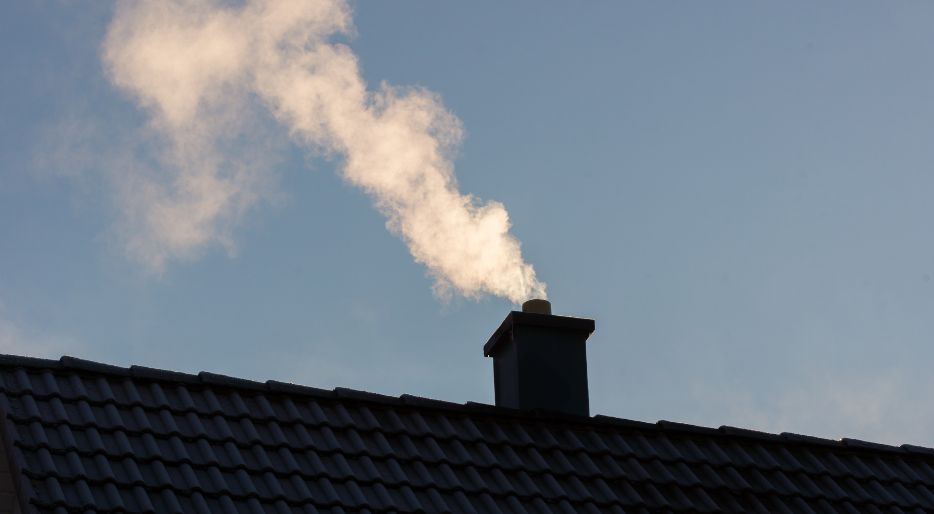
The chimney flue is one of the most important parts of the appliance. Being able to enjoy our fireplace or wood cooker during the coldest months of the year can be a real pleasure, as long as it works correctly and the installation is carried out properly.
If the chimney does not work properly, we find ourselves with a multitude of problems, as the smoke is present in the room where the chimney is located. Smoke can be very harmful, both for the appliance and for us and our health.
It is important to regularly check the pipes and flue of a fireplace to make sure they are in good condition and working properly. If the pipes or flue are damaged or clogged, they can cause safety problems, such as fire or carbon monoxide buildup.
For both safety and efficiency reasons, a fireplace or wood-burning stove must have the flue perfectly installed on the outside.
First of all, it is important to go through walls or partitions with 45° elbows. In addition, it is essential to avoid horizontal sections and 90º elbows, as these are the main causes of obstruction of the flues and smoke plastering. We must also avoid reducing the diameter of the flue duct, as this causes a lot of plaster.
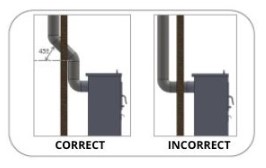
In addition, we recommend that the flue should be fitted with an anti-flue gas cap and the pipes should be at least 3 metres long.
We recommend that the pipes installed outside should be double-walled (or insulated) to avoid condensation problems that result in soot falling through the pipe joints and possible obstructions in the stove.
Important: If you find any problems while checking the pipes and flue of your fireplace, it is important that you hire a professional to repair them. Never attempt to repair the pipes or flue on your own, as this could be dangerous and may cause further damage.
The flue should be checked for any obstacles around the flue that may obstruct the flue.
External exits should be at least 1 metre above the highest part of the roof. If there is an obstacle within a radius of 5 metres around your home (trees, neighbour’s chimneys, buildings, etc.), the smoke outlet must be at least 1 metre beyond this obstacle.
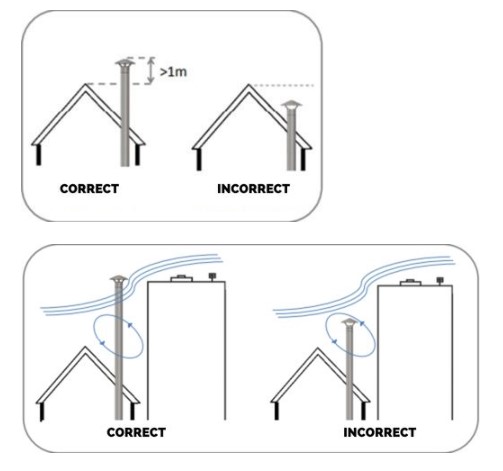
An exhaust fan is a ventilation system used to remove smoke and toxic gases produced by burning wood in a fireplace or stove. It is important to have a smoke extractor at home for several reasons. First of all for safety, since smoke and toxic gases are dangerous if inhaled. Another point is efficiency, since having an extractor fan allows air to circulate freely through the chimney or stove, which increases the efficiency of wood burning and allows the fire to burn longer. It also prevents the risk of clogging and protects the chimney from corrosion.
A constantly smoking chimney implies a risk of intoxication, so we must know how to act. In newer, closed wood-burning cookers or fireplaces, the problem is usually caused by incorrect installation: horizontal pipes, 90º elbows, pipes that are too short or too narrow, etc.
In the case of open fireplaces, it may be that the smoke extractor for wood-burning fireplaces, located on the outside in the form of a chimney cap, is not fulfilling its function or has deteriorated. It should be replaced with a new one.
If you suffer from smoke nuisance, the reason may be due to inadequate cleaning and maintenance. All these types of appliances should have a minimum cleaning after each use. It is important to remove ashes and soot.
We recommend you read the posts “How to sweep a chimney” and “How to clean a chimney, get it ready for winter!”
We also recommend checking the chimney flue and chimney cap from time to time, just in case it has been blocked by a nest, accumulation of branches, dust, etc.
Sometimes, it does not only depend on factors such as installation, cleaning or maintenance, but also on the fuel you use. You must learn how to make a chimney pull well and therefore, you must learn how to use the right firewood and how to light the fire.
The humidity of the wood should always be less than 20% and it should not be resinous. If the wood is damp, the heat that it will give off once the stove is lit will serve to vaporise the dampness and not to heat.
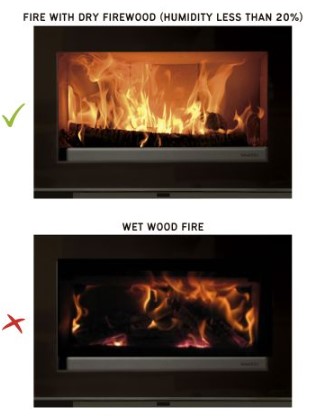
Wood with 50% or 60% moisture content does not heat and burns very poorly, creates a lot of soot and gives off excessive water vapour. This will lead to harmful deposits on the appliance, on the glass and in the smoke channels.
We recommend that you use ignition tablets to start the fire and do not refill the wood until you do not have enough embers. Here you can find a video where we show you how to light your fireplace or wood stove correctly.
Have you found this article useful? Take a look at our blog and find solutions and recommendations to help you with your fireplace or wood stove.
If you still haven’t got your fireplace or wood stove for this winter… what are you waiting for? Visit our online store of Panadero wood stoves.
Articles of interest:
If you liked the article, help us spread the word 😊 . Click on the buttons below and feel free to share it on your social networks!
Thank you!
↓ ↓ ↓ ↓

Although we enjoy the warmth of the fireplace, the odors can be unpleasant. With simple tricks like vinegar, salt, or baking soda, you can keep your home fresh and cozy.
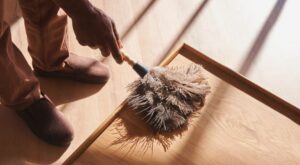
How to avoid dust in the house when using a wood stove: tips and tricks for a clean and healthy home
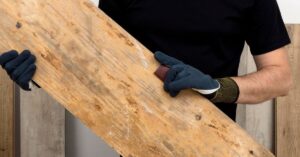
Learn how to remove mould from your wood for use by following the steps in this article.
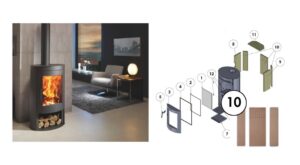
All you need to know: what it is, uses and benefits of wood stoves
To provide the best experiences, we use technologies such as cookies to store and/or access device information. Consenting to these technologies will allow us to process data such as browsing behavior or unique identifiers on this site. Not consenting or withdrawing consent may adversely affect certain features and functions.

From December 19 to January 6, order a wood stove and receive the Helix log holder for free.